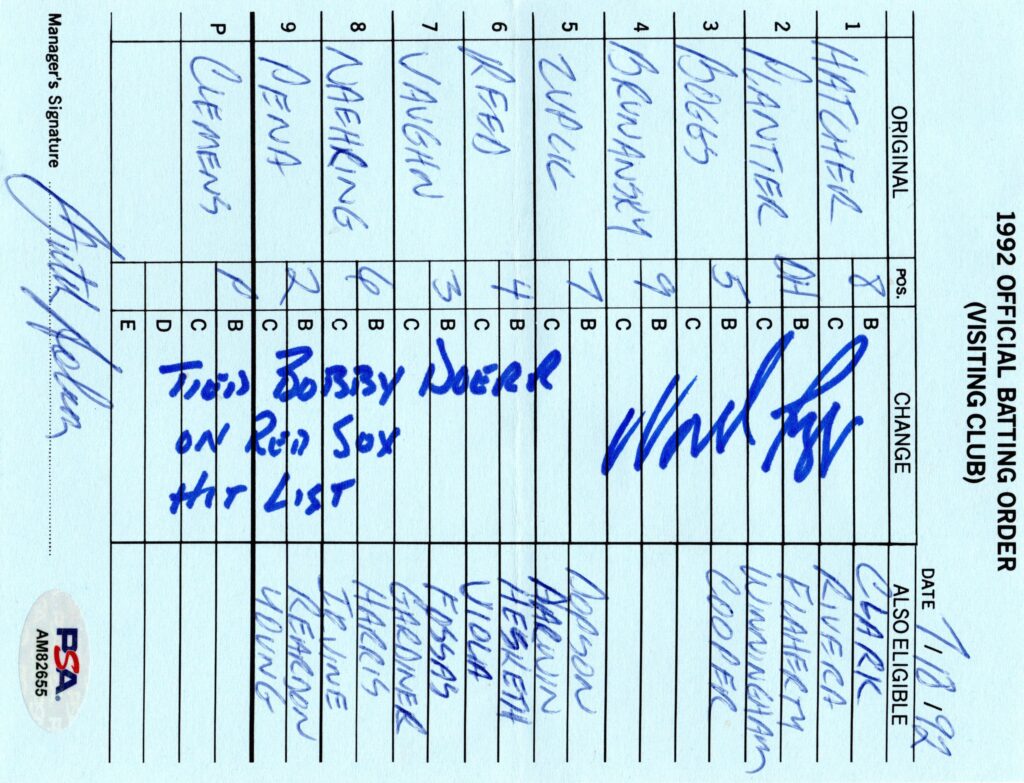
Wade Boggs spent his first 11 big league seasons in Boston. From 1982-1992 he earned five batting crowns while hitting .338 with a .428 on-base percentage.
In his final campaign with the Red Sox, Boggs climbed the the franchise leaderboard. On July 18, 1992 he caught Hall of Famer Bobby Doerr at 5th-place on the hit list. Doerr played in Beantown from 1937-1951 and retired with the most hits in franchise history.
Today Carl Yastrzemski (3,419) is tops, more than 750 hits ahead of #2 man Ted Williams, who first broke Doerr’s record. Coming in third is Jim Rice (2,452), followed by Dwight Evans (2,373). Boggs left Boston with 2,098, now 5th-most in team history. David Ortiz with 2,079 stands between Boggs and Doerr (2,042).
A .338 hitter with the Red Sox, Boggs remains second in batting average for Boston, trailing only the Splendid Splinter. When it comes to on-base percentage, Boggs is passed only by Williams and Jimmie Foxx among Sox batters.
Shown here is the lineup card penned by Red Sox manager Butch Hobson. Boggs is listed as the third hitter in the Bosox order for the July 18, 1992 contest.
In the top of the first inning Billy Hatcher laced a double down the first base line. After Phil Plantier grounded out to the right side to advance Hatcher to third, Boggs came up to bat.
On Scott Erickson’s 0-1 pitch Boggs dumped a short fly ball into left field to score what proved to be the game’s only run. The single was Boggs’ 2,042nd career hit as a Red Sox player to tie with Doerr on the all-time list.
Third baseman Boggs signed the lineup card adding the inscription, “Tied Bobby Doerr on Red Sox hits list”.
Boston pitcher Roger Clemens went the distance to record his 33rd career shutout. He twirled five more scoreless complete games before leaving the Red Sox in 1996. Clemens’ 38 career shutouts for Boston puts ties him with Cy Young for the most in Red Sox franchise history.
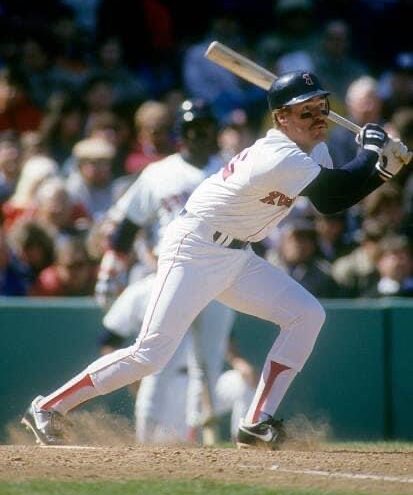
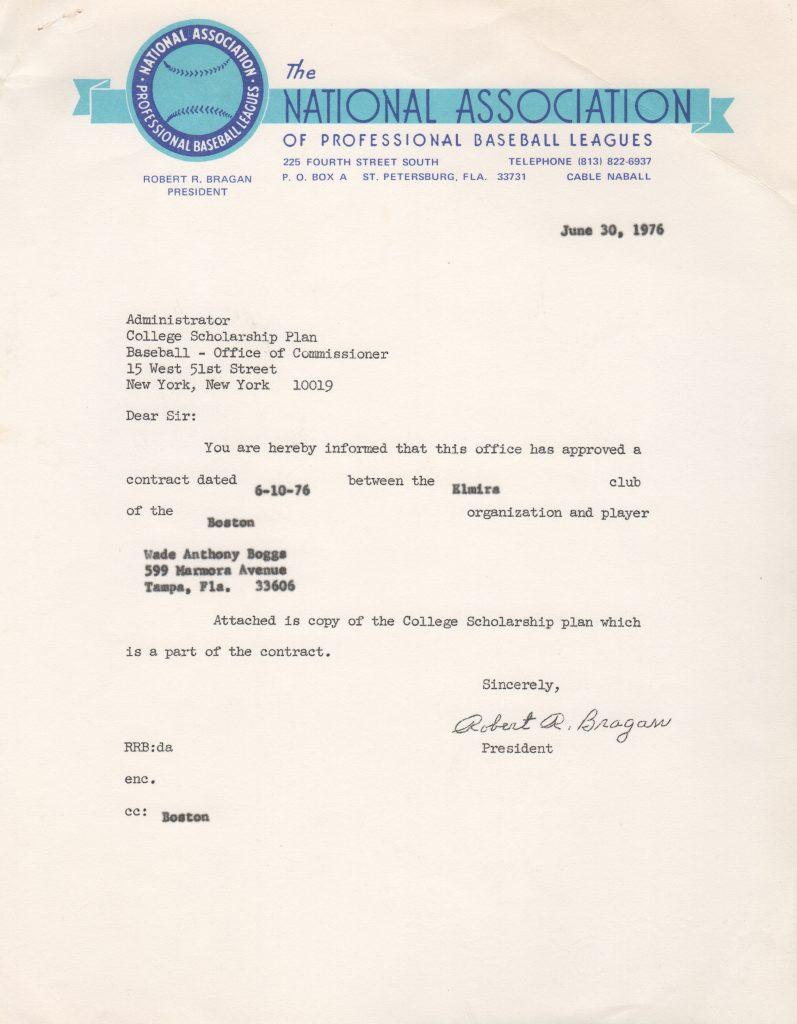
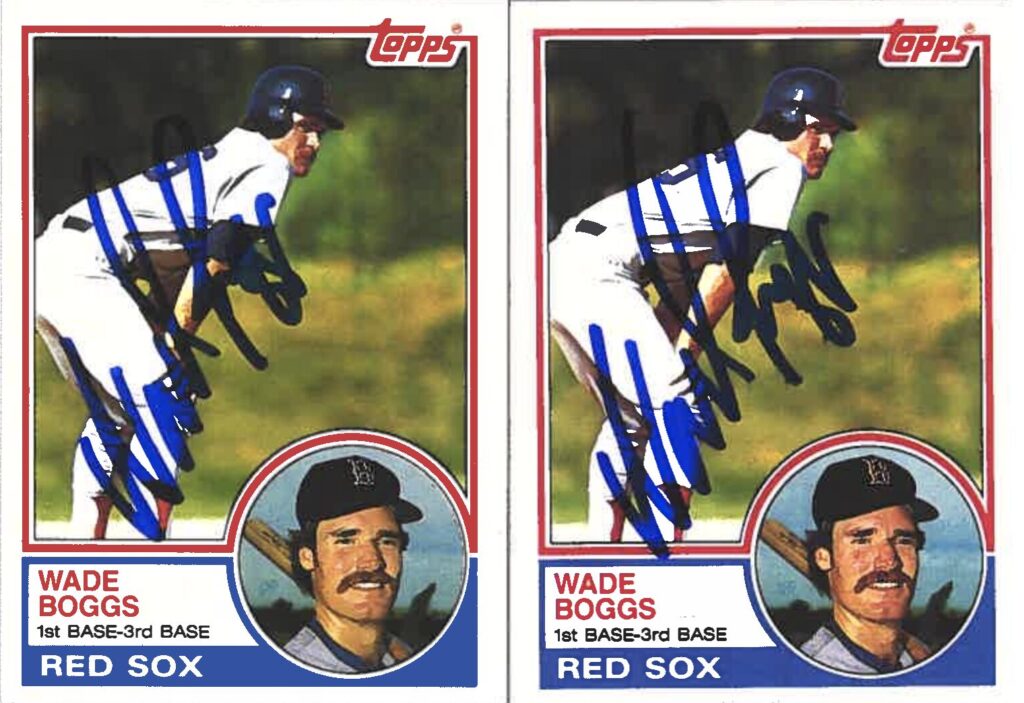
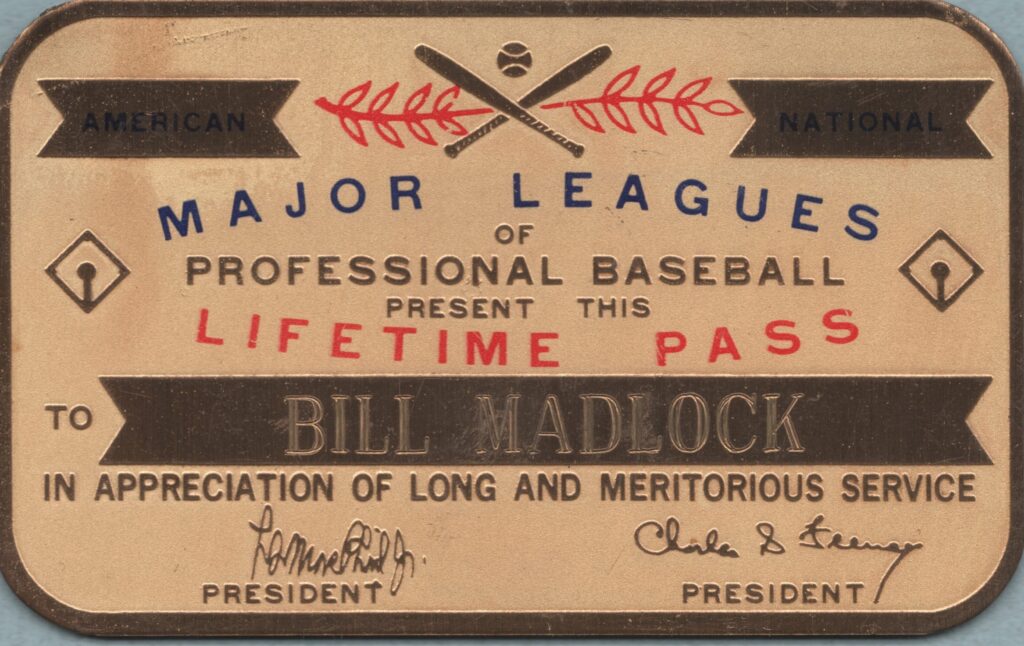
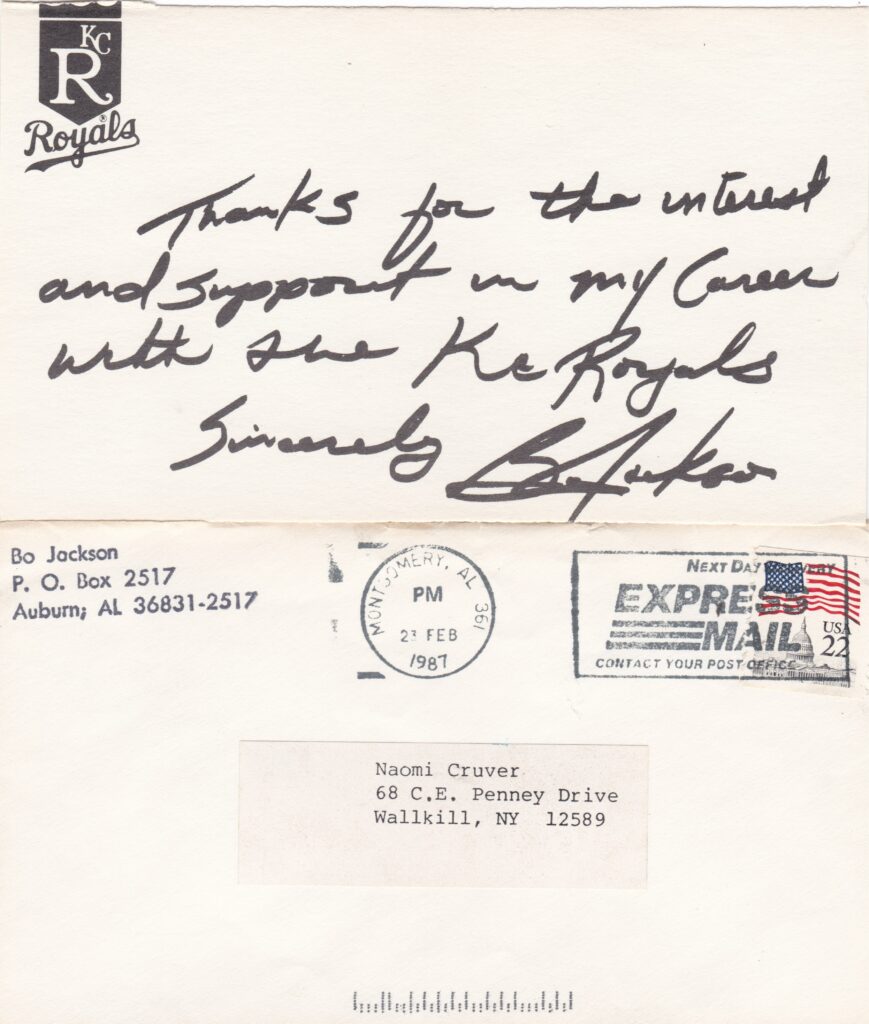
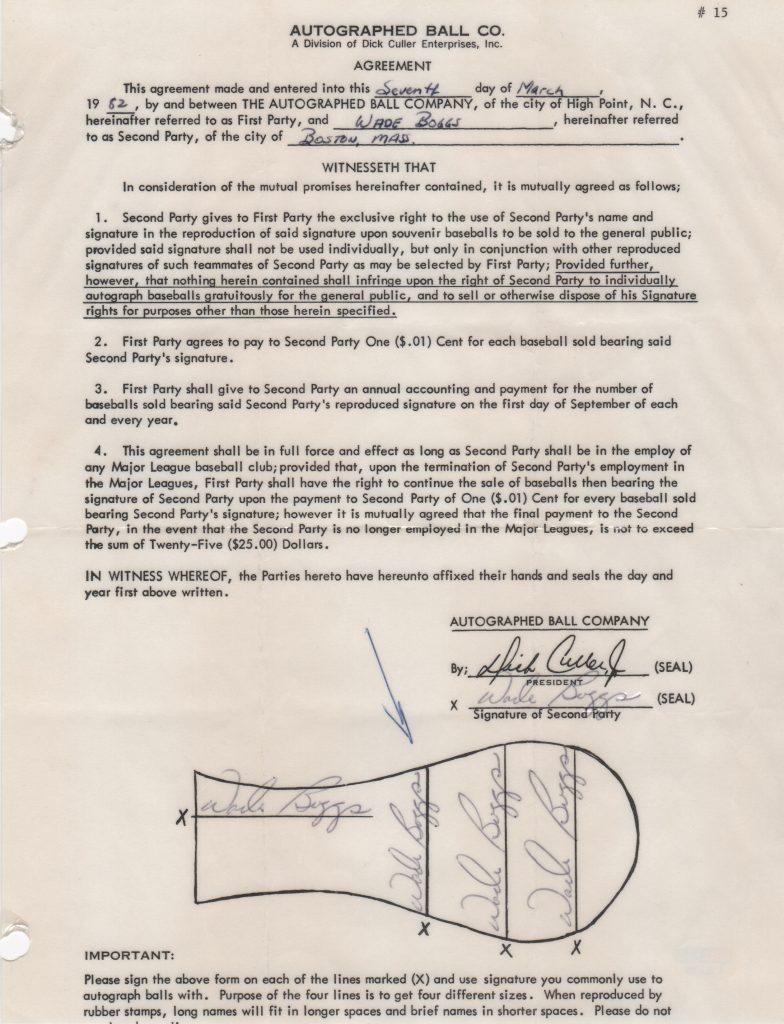
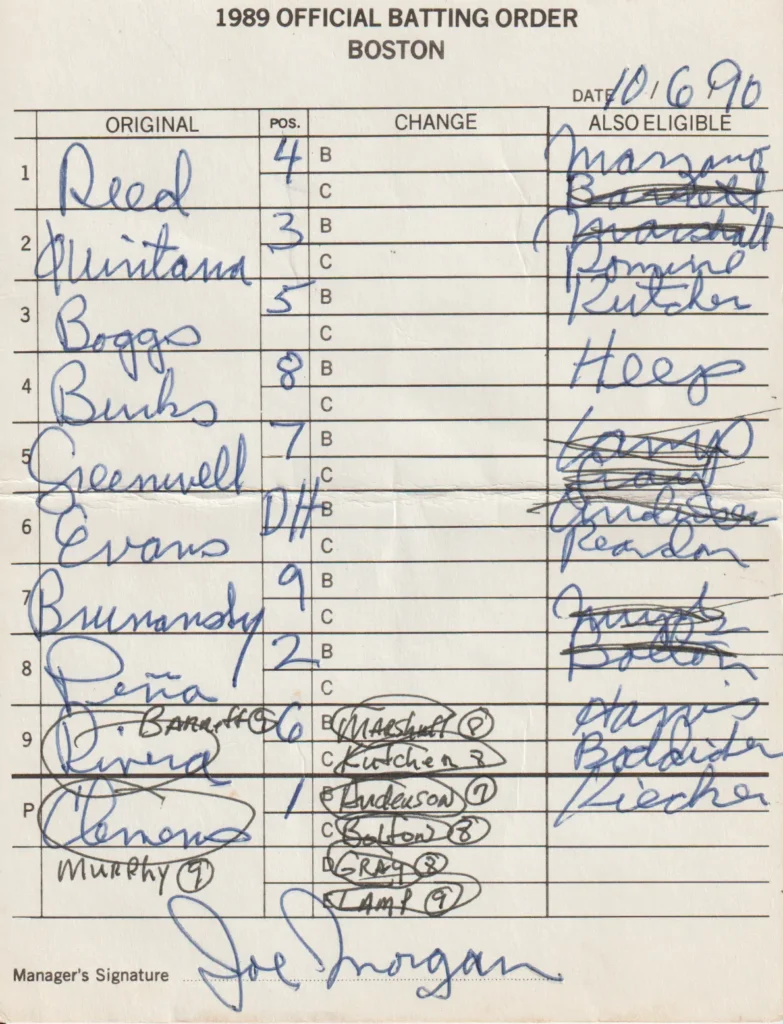

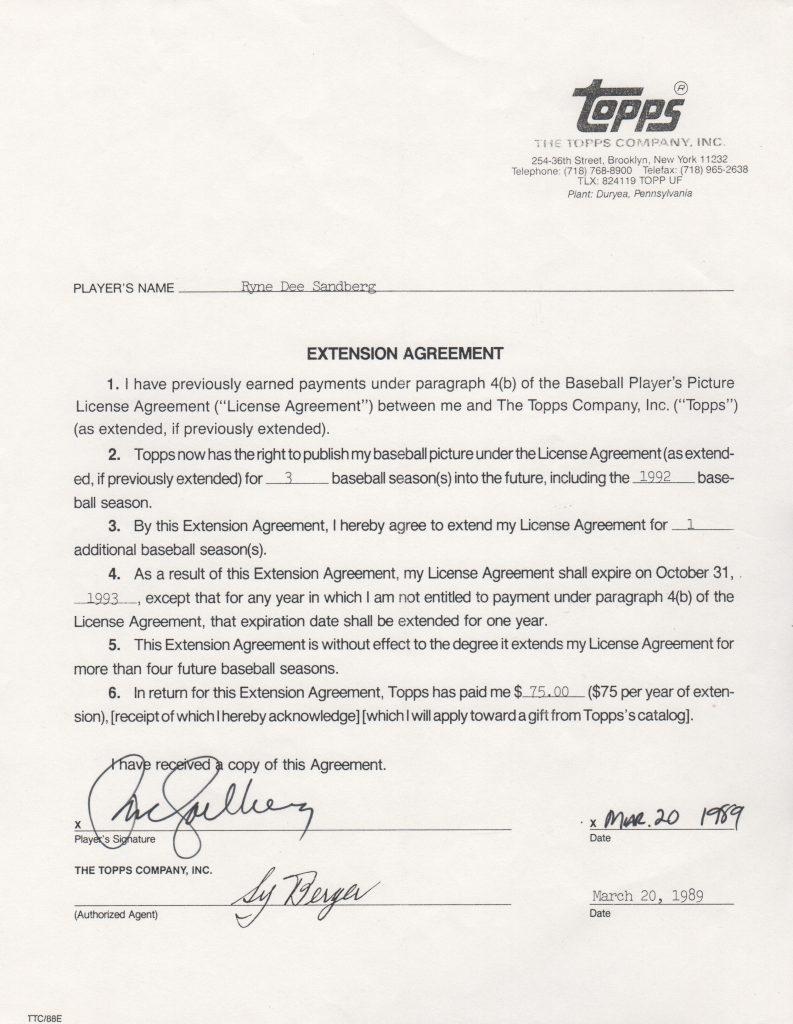
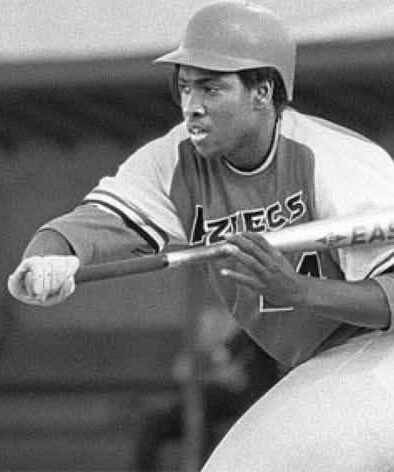
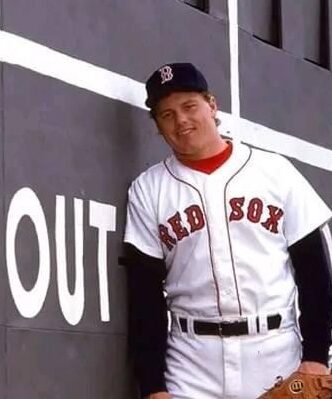
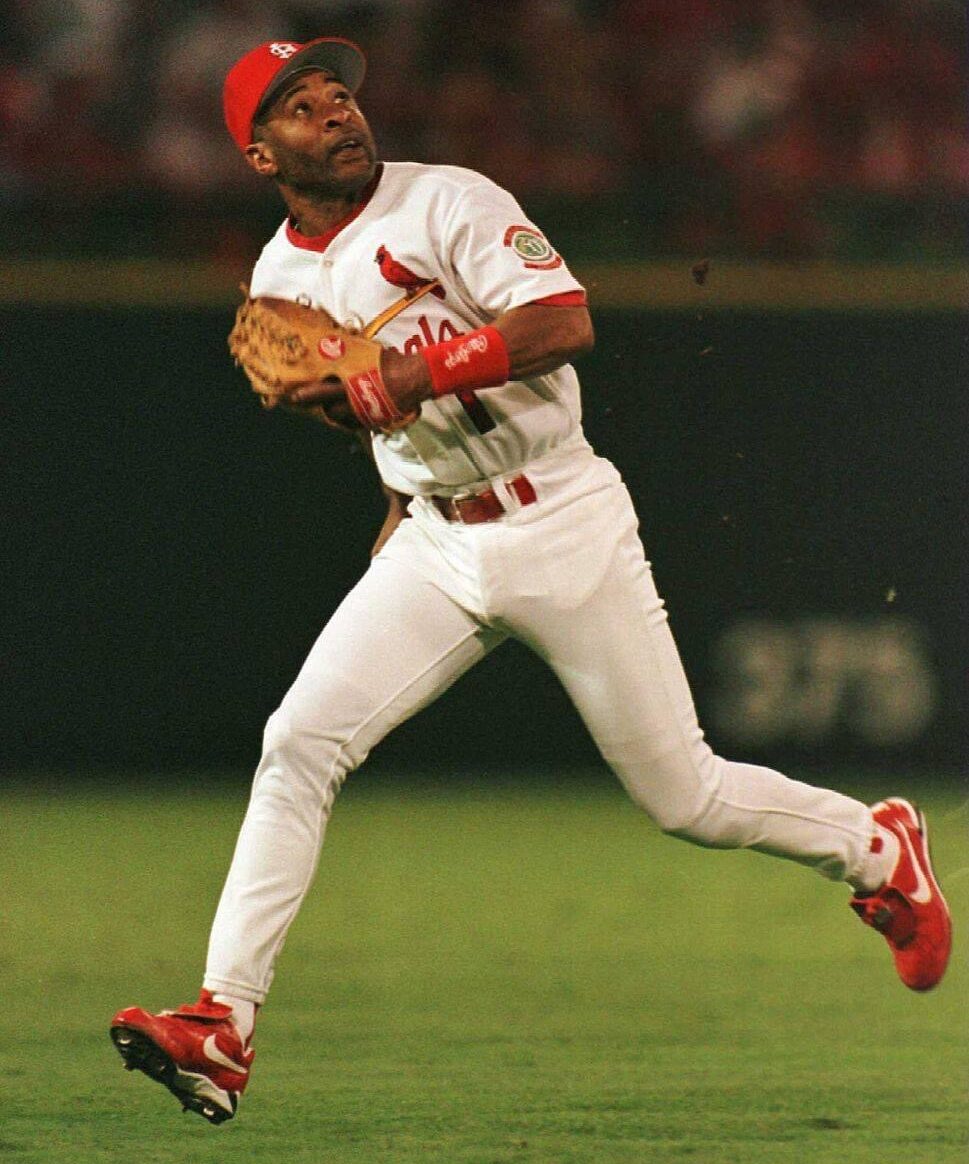
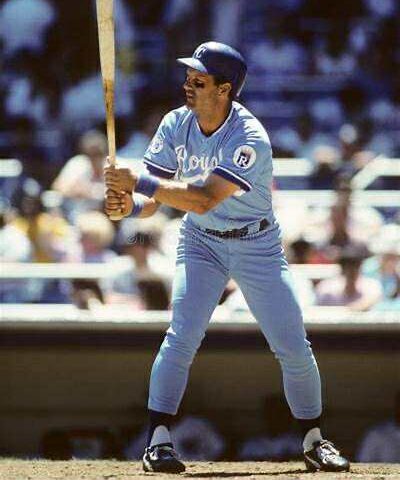
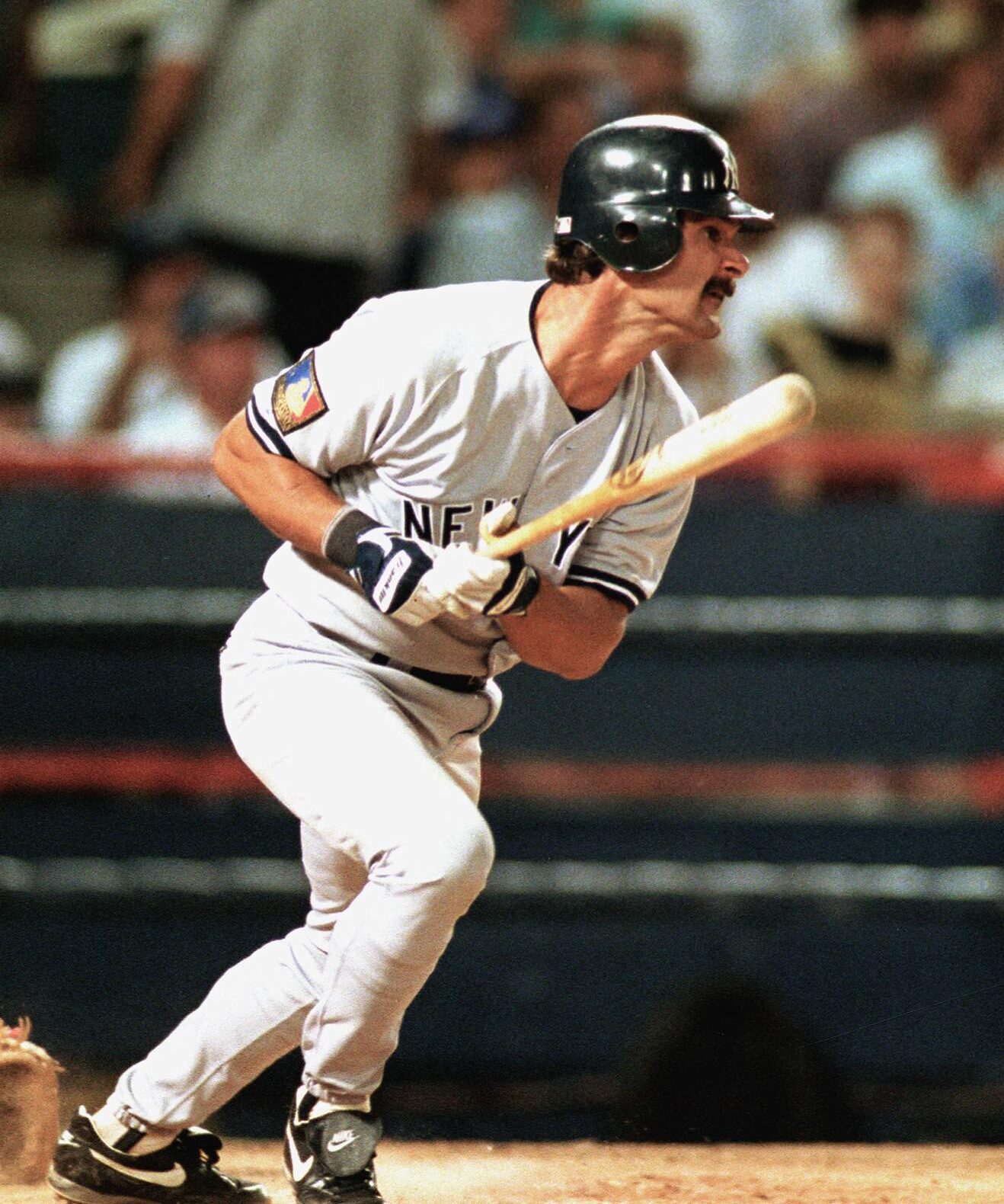
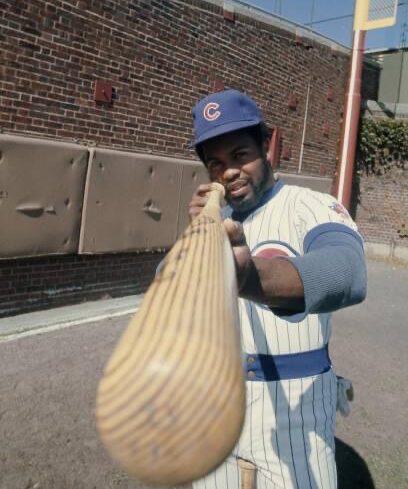
Well deserved.